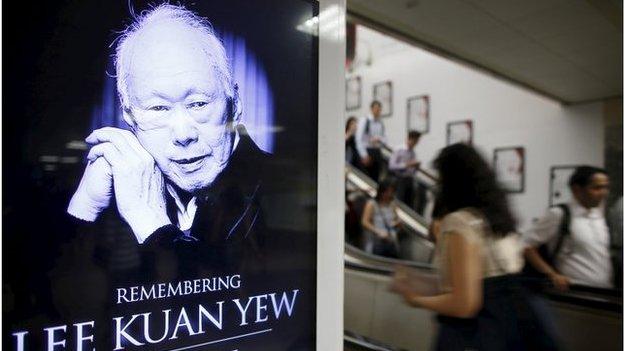Singapore's elections explained in memes
- Published
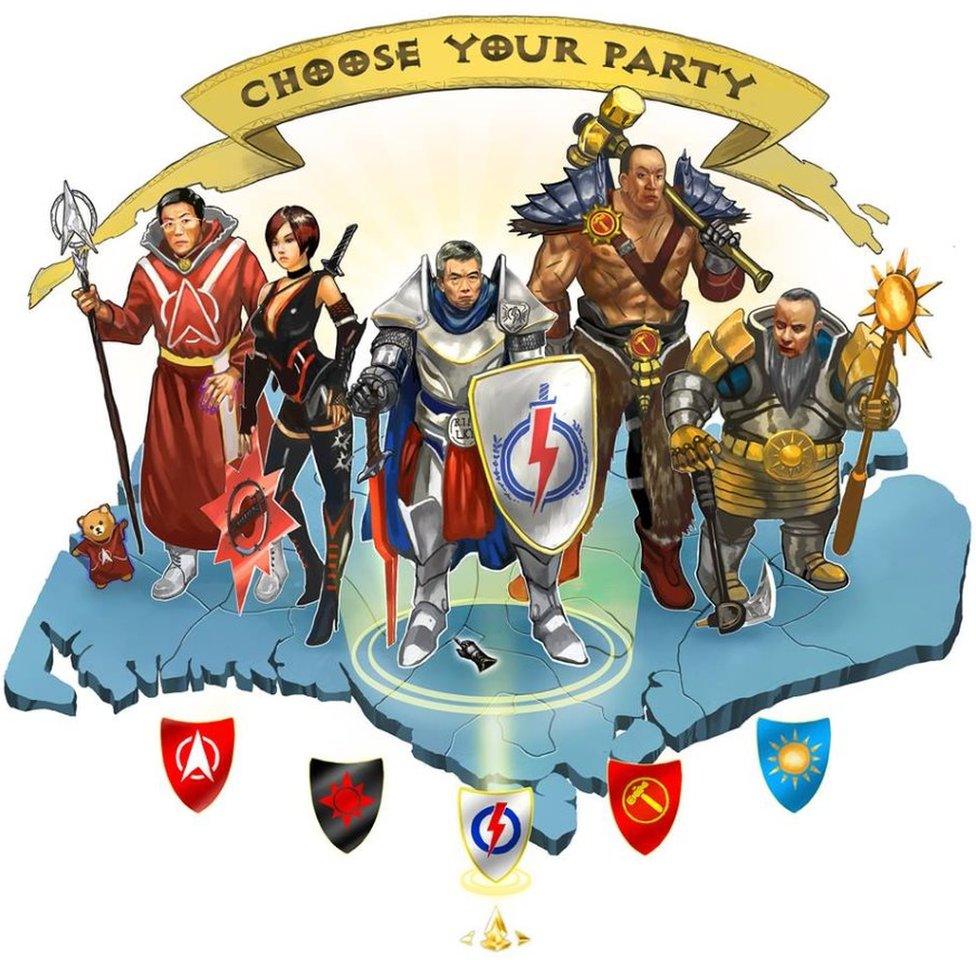
Politicians as fantasy role-playing characters, with the ruling PAP front and centre
Singaporeans head to the polls on Friday, and with the same party in power for 50 years, it's all but certain that the People's Action Party (PAP) will once again form the government.
With the help of popular local memes, the BBC explains why the PAP keeps winning - and why results may not remain predictable for much longer.
Too legit to quit
Like a blockbuster film, Singapore's elections are often a colourful spectacle with an all too predictable ending - much like the Chinese war film Red Cliff, parodied in this movie poster by designer PixelGod.
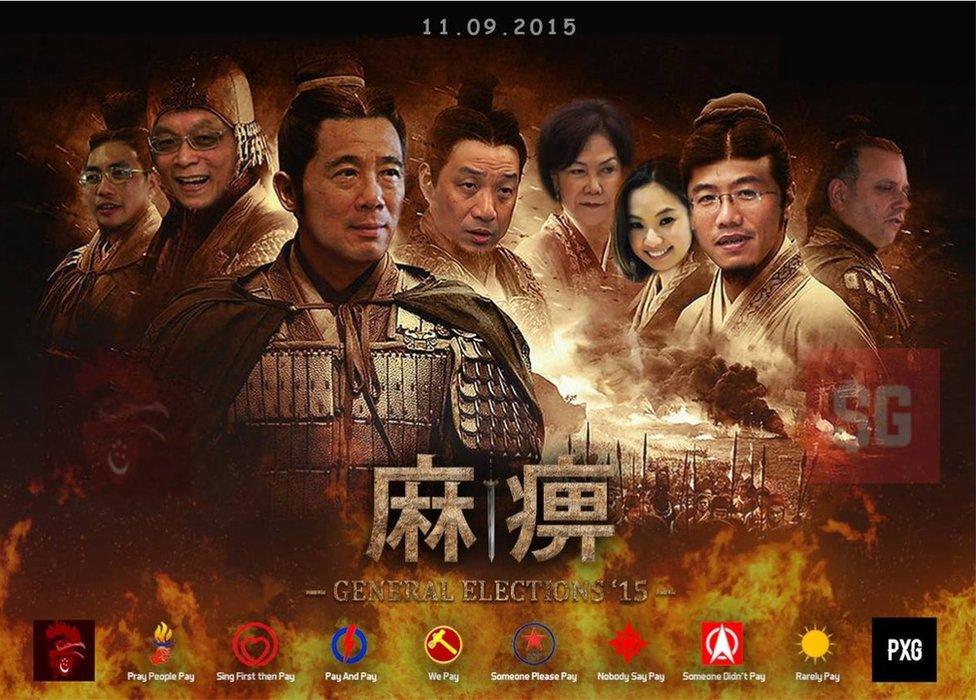
Prime Minister Lee Hsien Loong (third from left) as a general lined up against the opposition
The PAP has long enjoyed widespread support and political legitimacy, especially among older Singaporeans who have seen the country swiftly develop into a first-world economy.
Pragmatic voters have been willing to trade in some freedoms in exchange for prosperity and stability. The country's massive jubilee celebration last month reminded Singaporeans how far the country has come - and may have helped to shore up voter goodwill for the PAP.
But younger Singaporeans have also been calling for greater government accountability, particularly with recent stumbles over immigration and infrastructure.
The PAP has tried to address these problems, but that has not quelled the demand for more opposition representation.
Lee legacy
The PAP is synonymous with its charismatic and deeply respected leader Lee Kuan Yew, whose presence looms large over this election, the first to be held since his death in March.
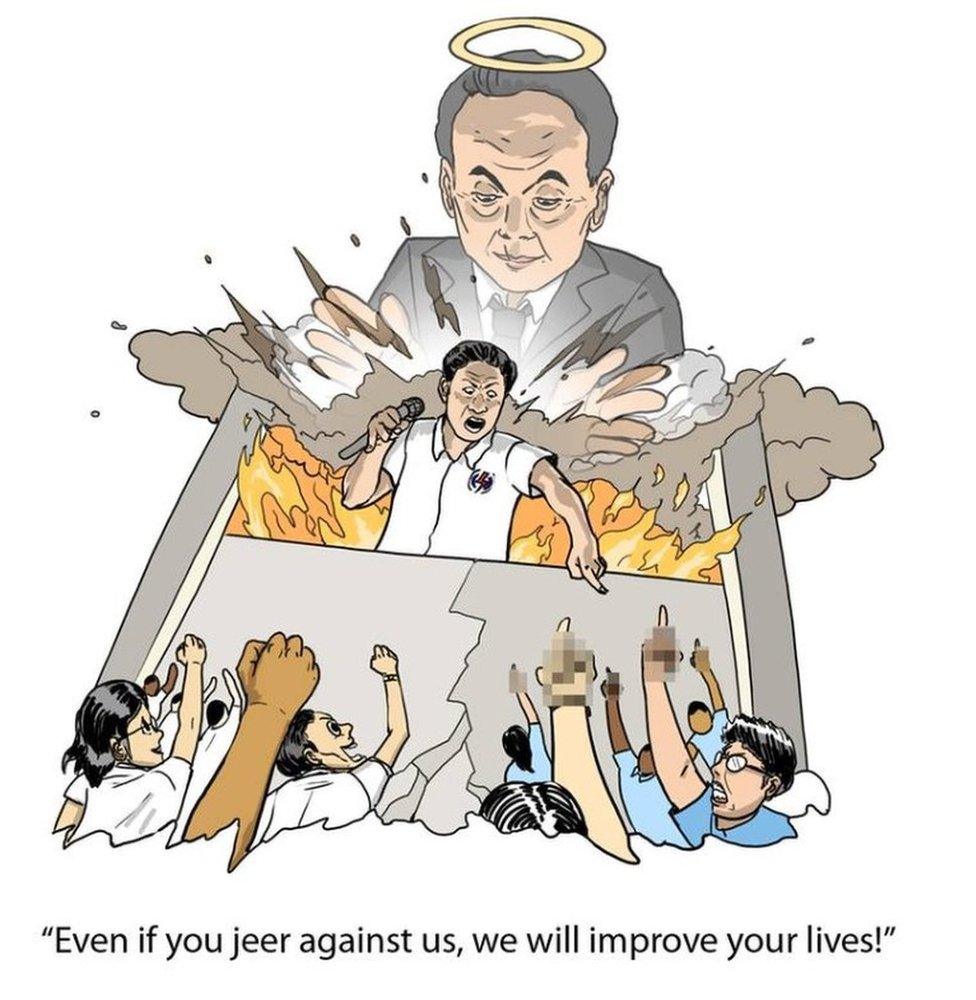
He led the country as prime minister from independence in 1965 to 1990 and his personal popularity helped to ensure the party's non-stop electoral success.
His death in March triggered an outpouring of grief and tributes, which may contribute to greater PAP support this election.
Lee was also known for his merciless attitude towards opponents with defamation suits, which critics say created a culture of fear and stifled dissent.
This election is the first to see all constituencies contested, as more opposition candidates step forward into the political spotlight.
These include Chee Soon Juan, who was bankrupted by Lee's suits and is staging a comeback this election.
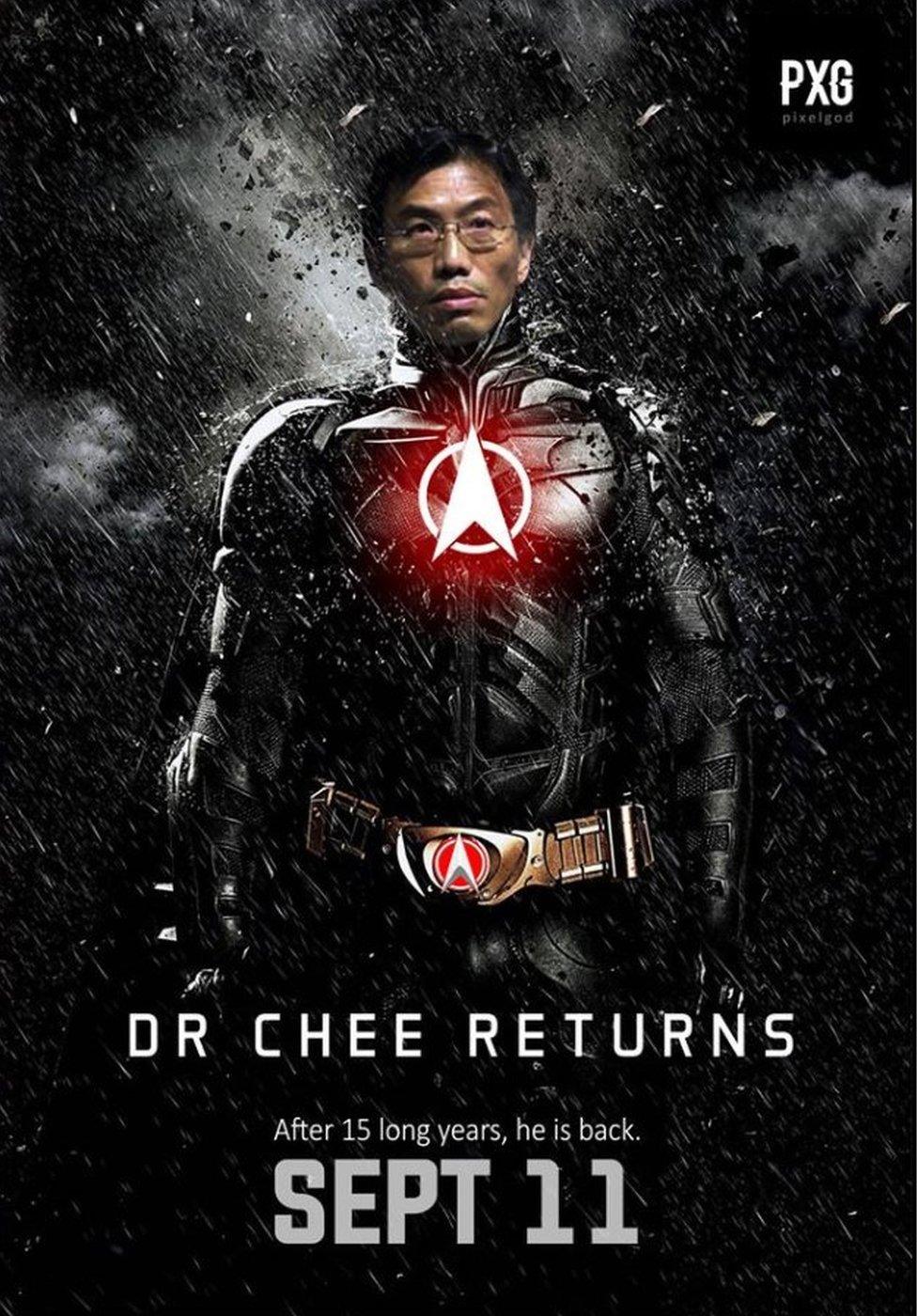
Blurred lines
Singapore has a democratic system largely seen as clean and fraud-free. But there are aspects of the political structure that critics say undeniably benefit the PAP.
One is grouping constituencies into blocs, known as group representation constituencies (GRCs).
(This is to ensure ethnic representation in parliament, as Singapore is a multi-racial country. Each party that sends a team to contest must have at least one ethnic minority candidate.)
But with Singapore's winner-takes-all, first-past-the-post system, whichever team gets the most votes wins the whole GRC, which makes it difficult for opposition parties to make gains.
Some say it also allows less popular PAP candidates to ride on the coat-tails of more popular ones into parliament.
The constant moving of constituency boundaries by a non-independent election committee - convened by the prime minister and usually led by his secretary - has attracted allegations of gerrymandering, particularly when neighbourhoods that are far apart are grouped together.
The PAP has denied these accusations, saying that some of the changes have disadvantaged them too.
But the practice has been mocked in election haikus by Facebook group Haiku Party.
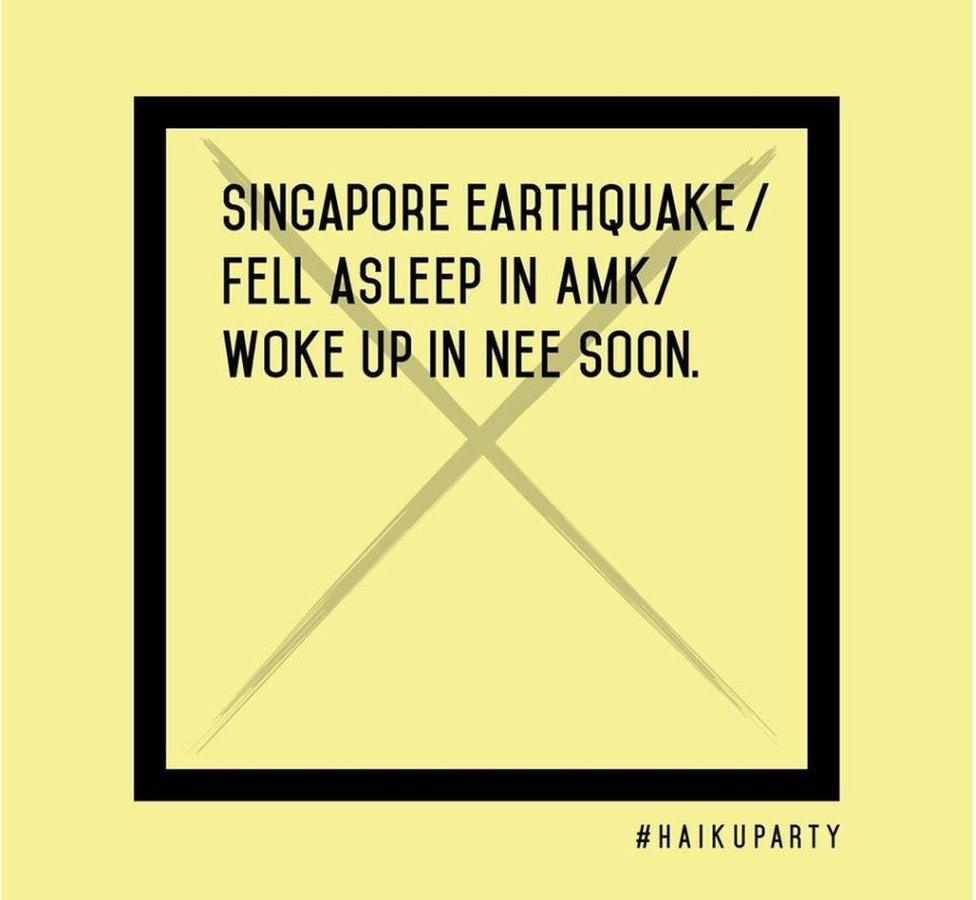
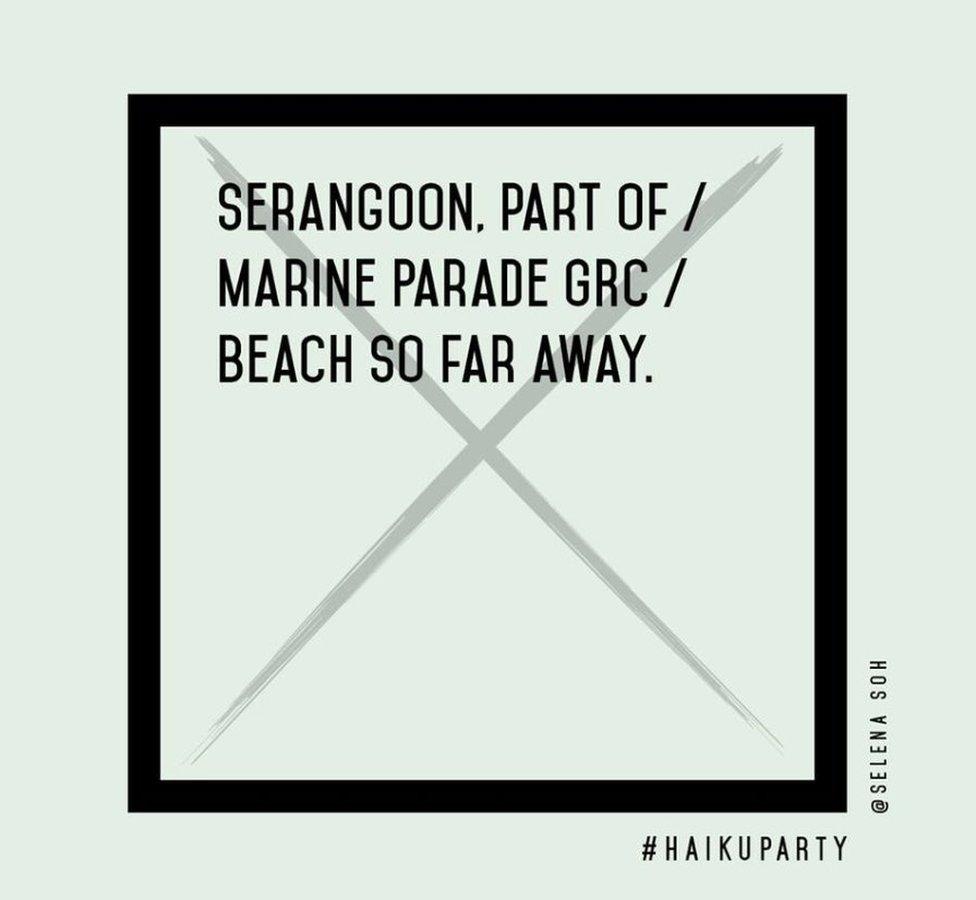
Firing up
Another point of contention is the close relationship between the ruling party and government machinery, and controlling taxpayer-funded resources to shore up political dominance.
Design collective A Good Citizen has parodied this dominance with this cartoon of opposition supporters under attack.
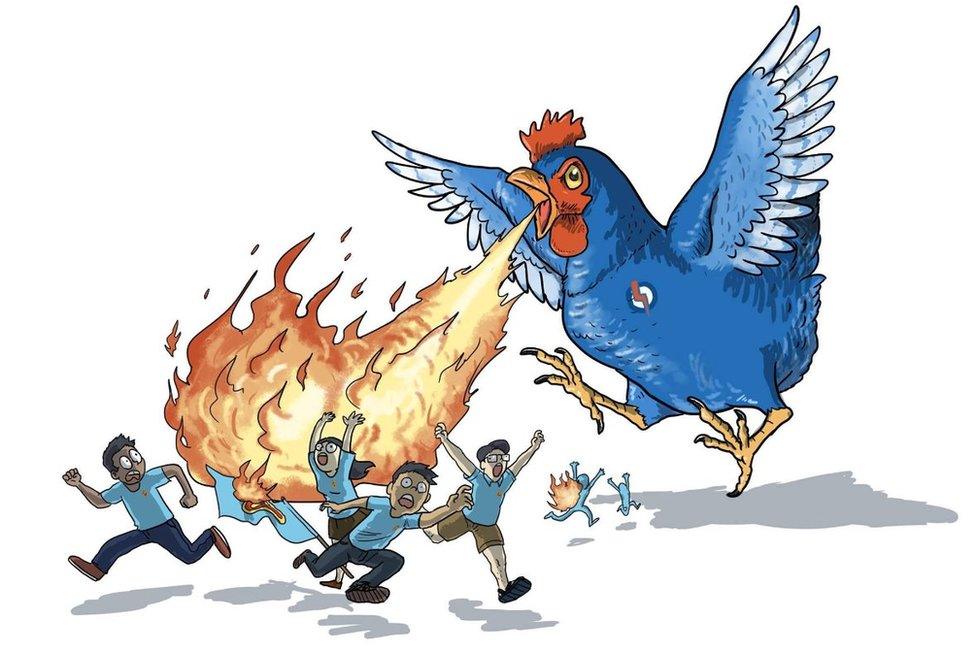
Opposition MPs say they face significant hurdles in getting government funds and community resources for their constituencies, and that these tend to be dispensed through PAP-friendly community groups.
Until recently the PAP also used to promise that opposition constituencies would be served last when it came to housing improvement works - a significant issue as most Singaporeans live in government housing.
Such practices have resulted in calls on the PAP to create a more level playing field in politics.
- Published4 September 2023
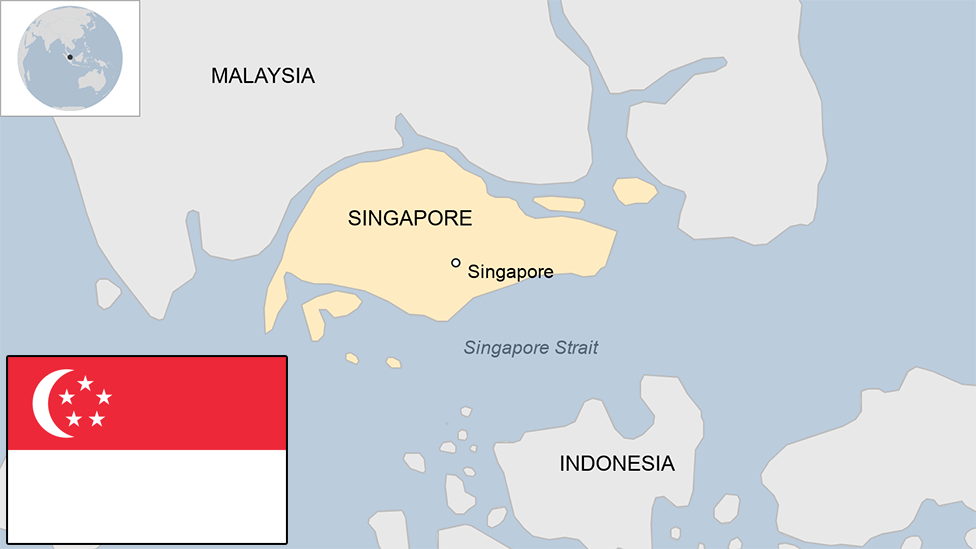
- Published28 March 2015
